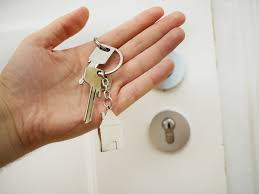
You may be eligible to purchase your first home with as little as a 5% deposit via the First Home Guarantee Scheme.
How does it work?
You usually need to save a deposit of 20% if you want to borrow to buy a home without needing to pay lenders mortgage insurance (LMI). Under the First Home Guarantee Scheme (formerly the First Home Loan Deposit Scheme), the Government will provide a limited loan guarantee of up to 15% of the home value. This may enable you to buy your first home with a deposit of only 5% and no LMI will be payable.
What are the key points?
- You’ll need to earn less than the income limit and meet other eligibility conditions
- The purchase price will be capped, depending on the property’s location.
- You need to move into the home as your main residence within certain timeframes
Who may be eligible?
To be eligible for the First Home Guarantee Scheme, you must:
- be an Australian citizen aged 18 years or older
- earn a taxable income of less than $125,000 pa (for individuals) or $200,000 pa (for couples combined), based on the last financial year
- not have owned a residential, investment or business property before
- intend to be an owner-occupier of the purchased property, and
- be purchasing a home (both newly built and established properties qualify under this scheme).
If you’re a couple, you must be legally married or in a de facto relationship and both of you will need to meet the eligibility criteria.
For more information about the types of properties that may be eligible and important timeframes, see www.nhfic.gov.au
What types of homes can I buy?
Under the scheme, you’re able to purchase an eligible property which includes:
- an existing freestanding house, townhouse or apartment
- a house and land package
- land and a separate contract to construct a home, or
- off-the-plan townhouse or apartment.
Certain requirements apply depending on the type of property and contract you’re entering into.
What are the property price caps?
Caps apply to the purchase price to ensure participation is spread fairly across the country. The capital city price caps will apply to large regional centres with a population over 250,000, namely the Gold Coast, Newcastle and Lake Macquarie, the Sunshine Coast, Illawarra (Wollongong) and Geelong. The caps for the financial year 2024/2025 are as follows:
| State/territory | Capital city and regional centres | Rest of state |
| SA | $600 000 | $450 000 |
| NSW | $900 000 | $750 000 |
| VIC | $800 000 | $650 000 |
| QLD | $700 000 | $550 000 |
| WA | $600 000 | $450 000 |
| TAS | $600 000 | $450 000 |
| ACT | $750 000 | – |
| NT | $600 000 | – |
What’s the downside?
While the First Home Guarantee Scheme may help you buy your first home sooner, you need to keep in mind that a smaller deposit means a bigger loan. And a bigger loan means bigger loan repayments, as well as higher total interest payments over the life of the loan. It may be the case that the additional interest payable outweighs the LMI savings. To find out whether the First Home Guarantee Scheme is right for you, you may want to obtain independent financial advice.
Also, if you move out of your home for an extended period of time and rent your home out, the loan may no longer be guaranteed by the Government. You may need to pay additional fees and charges, as well as LMI, depending on factors such as the value of your home and your outstanding debt at that point.
Which lenders are participating and how do I apply?
Applications can be made directly via one of the approved lenders or their authorised representative (such as a mortgage broker). The Government has appointed specific lenders to the panel of mortgage lenders able to offer guarantees under the scheme.
What lending rules apply?
You’ll need to meet your lender’s normal credit criteria to ensure you can service a loan of up to 95% and provide evidence you’ve saved the 5% deposit. Loans must be principal and interest (not interest only) and terms can be up to 30 years.
What other assistance programs are available?
The First Home Guarantee scheme complements (but doesn’t directly interact with) other Government assistance programs. These include the:
- First Home Super Saver Scheme, where you could save for the deposit on your first home in the concessionally taxed superannuation system
- First Home Owner Grant, which offsets the effect of Goods and Services Tax on buying or building a home, and
- State and Territory based stamp duty concessions.
What next?
To find out more about the First Home Guarantee and ways to fund the purchase of your first home, we recommend you seek independent financial advice. You can also find out more at www.nhfic.gov.au
